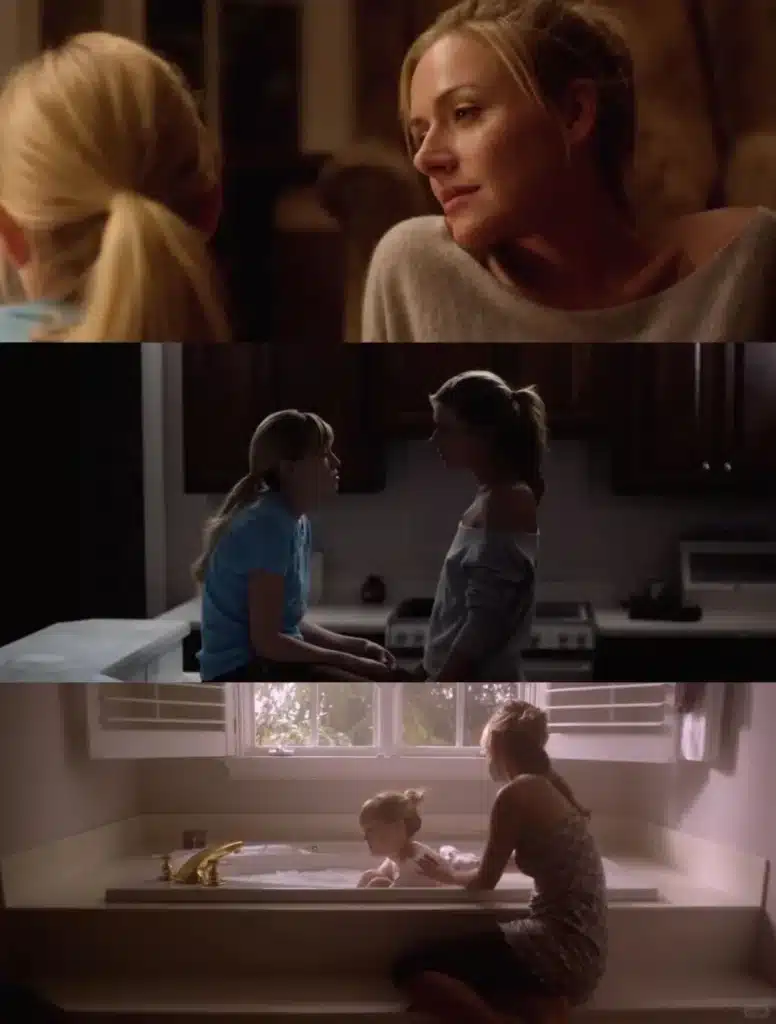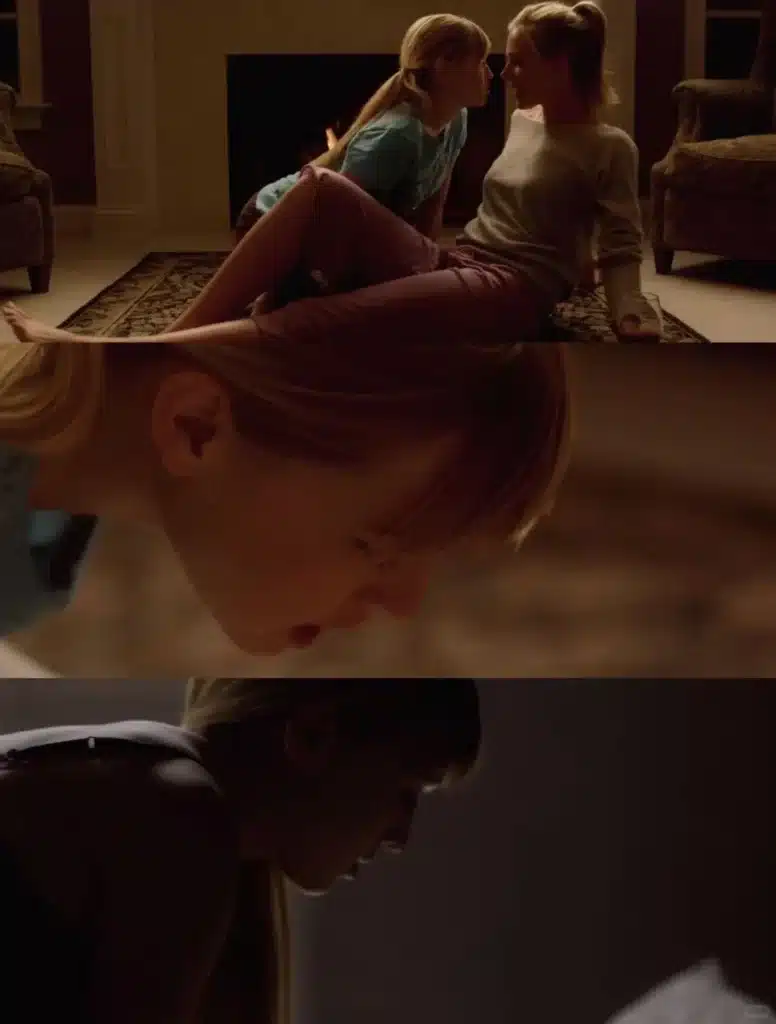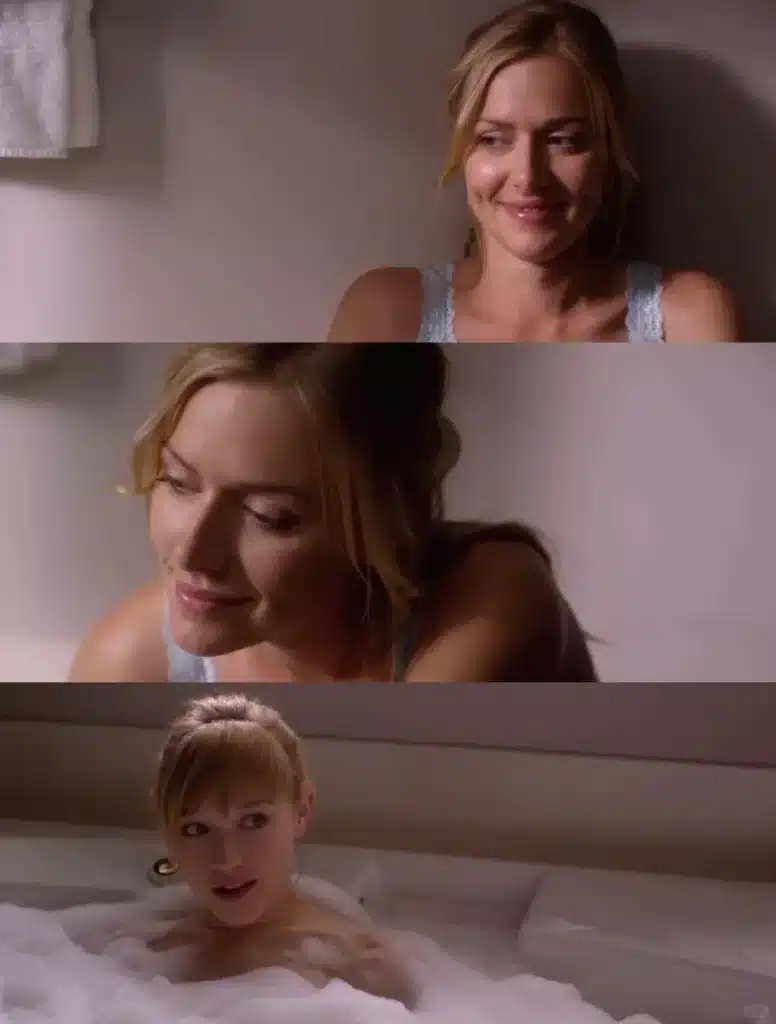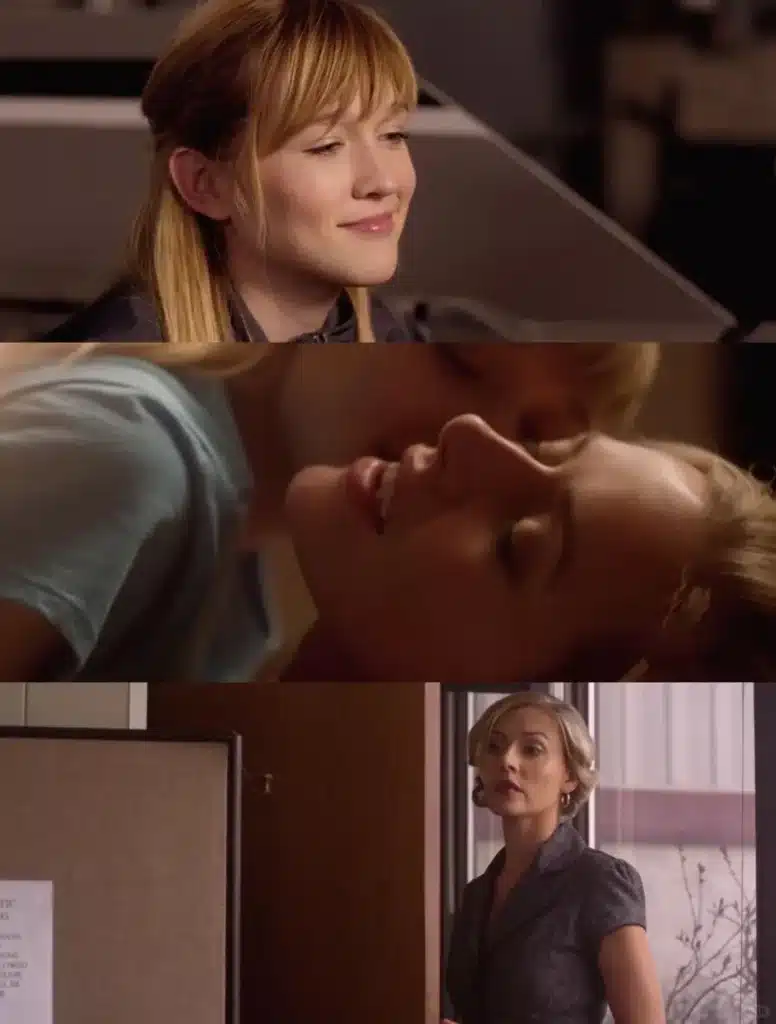Bloomington is a melancholic, intimate portrayal of a fleeting but formative romance between a young woman searching for identity and an older professor scarred by past entanglements. Written and directed by Fernanda Cardoso—a woman whose quiet gaze shapes every frame—the film feels deeply personal. There’s a haunting nostalgia woven into the storytelling, so emotionally precise it’s hard not to believe this was once her truth. More than a love story, it’s a memory dressed in autumn leaves and unsaid words.

Jackie Kirk, a 22-year-old former TV star, enrolls at a liberal arts college in Indiana to start fresh and escape her fame. There, she meets Professor Catherine Stark, a psychology lecturer with a complicated past and a tendency to fall for her students. Their relationship grows quickly—passionate, intellectual, and emotionally risky.
But the closer they get, the more their inner contradictions begin to show. Jackie longs for independence and recognition in her own right, while Catherine resists vulnerability, shaped by a lifetime of solitude and subtle cynicism. What begins as a thrilling escape from routine evolves into a deep emotional entanglement—one that might not survive the real world.


A former child actress trying to rediscover herself away from the camera, Jackie is intelligent, sensitive, and drawn to emotional complexity.
Sarah Stouffer
Sarah Stouffer is known for her nuanced portrayal of queer characters. Her performance here is quietly powerful—she balances the vulnerability of a lost young adult with the self-awareness of someone who has lived a public life too early.

A psychology professor with a guarded heart and a messy romantic history. She’s elegant, composed, but clearly yearning for connection.
Allison McAtee
Allison McAtee brings an air of intellectual aloofness and quiet yearning to Catherine. Her portrayal walks the line between control and surrender, making the character both enigmatic and deeply human.
Director

Fernanda Cardoso
Fernanda Cardoso, making her directorial debut with Bloomington, brings a distinctly female gaze to the story. She resists the urge to sensationalize and instead chooses quiet, emotional realism. Her background in editing is evident in the pacing—each scene lingers just enough to let the silence speak. It’s a deeply empathetic film that prioritizes emotional truths over dramatic spectacle.
Bloomington Review
Review





⭐ Story
At first glance, Bloomington appears to be a typical campus romance, but it quickly veers into more complex territory. The film dives into the emotional layers of two women separated by age, life experience, and values. It’s not just a love story—it’s about the friction between idealism and realism, between youthful ambition and lived regret.
⭐ Acting
Sarah Stouffer and Allison McAtee bring their characters to life with understated performances. Stouffer’s Jackie is both vulnerable and ambitious, while McAtee gives Catherine a reserved elegance and emotional depth. Their dynamic carries the entire film.
⭐ Chemistry
The tension between Jackie and Catherine feels immediate and authentic. Their scenes pulse with both sensuality and emotional restraint, making the film’s quieter moments just as intense as the physical ones.
⭐ Production
Though clearly a low-budget indie, the production design works in favor of the film. The muted autumn palette, cozy campus interiors, and quiet score all amplify the film’s melancholic undertone. The dialogue feels intimate, as if we’re listening in on a deeply personal exchange.
⭐ Ending
The ending is intentionally ambiguous. They part ways, yet the connection lingers. It’s a film about those relationships that change you forever—even if they don’t last. Some viewers may find the conclusion unsatisfying, but it’s consistent with the film’s realistic tone.
💬 My Take
Bloomington moved me in a quiet, deeply personal way. It’s not about whether the characters end up together, but about what they awaken in each other. Catherine isn’t just Jackie’s lover—she becomes a mirror, forcing her to confront what she truly wants. The age difference, the teacher-student dynamic, the pain of outgrowing someone you love—it all felt painfully real. The film doesn’t exploit the lesbian label; it humanizes it. It’s about love, loneliness, and the cost of choosing yourself.
